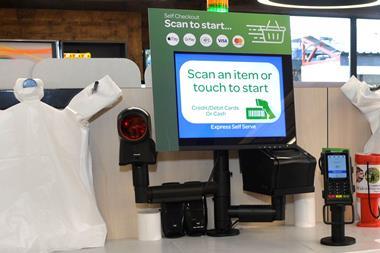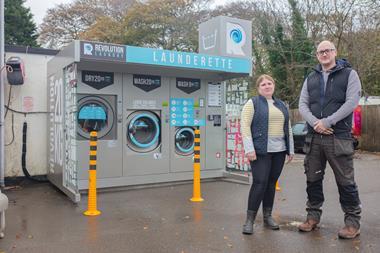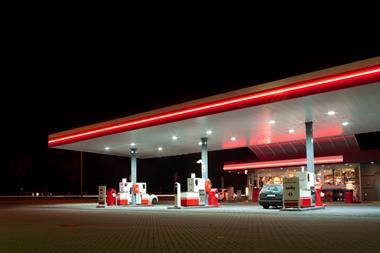The price of super petrol?
Ah good, some feedback, but oops, not quite what I was expecting. Guy White, who runs The Laurels Service Station with his brother (in a business taken over by their father in 1963 at Horncastle in Lincolnshire) wondered whether I was encouraging everyone to buy supermarket petrol. This was in response to a ’paying too much for petrol’ website promoting a boycott of Esso and BP, which prompted one woman to comment that she wouldn’t put "crap supermarket petrol" in her car. I merely wondered where she thought the supers got their petrol. Before I go any further, let me say, categorically, that no, I don’t wish to encourage the public to buy their petrol, or diesel, at supermarket sites. It’s my job too, you know, that’s on the line.
Guy, whose business has been supplied by Shell "for well over 40 years", reckons that it’s the additive package that makes the difference.
"Goodness me has everyone forgotten about 2007 and all the cars that were reporting faults. I didn’t hear mention of any leading retailersonly the supermarkets. It’s the additive package that is different, and this is where we must educate the motoring public. I am sure if I gave you a cup of own-label tea or coffee purchased purely on price from a leading supermarket, you would tell the difference immediately. As cars get more complex it is increasingly a must to use a better quality fuel."
While he was at it, Guy had a go at the public’s general ignorance of how the price of petrol breaks down. "How many people are actually aware that currently nearly 90p of the price of a litre of fuel is the government’s?"
This led me to ask him why petrol retailers don’t exhibit this on their pole or on some other sort of sign about the place. He replied: "We have produced a sheet in the past as a pie chart/graph showing what is the cost of product, what is duty and what is VAT and how much/little we make. But customers just seem to blame oil companies full stop, as they make a profit!"
Will it soon be on tap?
Although you make next to nothing on petrol/diesel, have you heard the one about running on fresh air? No, me neither, not yet. But I am still banging a drum about alternative fuels. I wonder what Guy (in the previous story ) would make of a recent news broadcast in the States? It concerned an invention by 63-year-old American John Kanzius that claims to create an alternative fuel out of salt water. Through sheer serendipity he discovered that, under the right conditions, salt water can burn at high temperatures.
He was actually looking for a cure for cancer and came up with a radio frequency generator (RFG), a machine that generates radio waves and focuses them into a concentrated area (to destroy tumours). During his first test, however, he noticed a surprising side effect. When he aimed the RFG at a test tube filled with seawater, it sparked. This is not a normal reaction to water.
A major university is now interested in the project and an excited news report on an American news channel examined "an invention that may save the world" and save motorists from having to pay "nearly four bucks for gas". It must certainly resonate with Americans at the moment while BP struggles to contain itself, but it’s not the first time this has been mooted. Back in the early ’60s there were rumours of cars-running-on-water inventions patents that were said at the time to have been bought up by the oil companies and soundly squashed.
A chilling tale
Jonathan James should give himself a big pat on the back for promoting a compelling case for putting doors back on the chillers. At the beginning of the year he decided to do this at two of his sites an established business at Ely and a new-build at Littleport, both in Cambridgeshire. The move was reported one way or another in most of the trade press.
Back in January he told me: "I asked my refrigeration company to tell me the difference over 12 months and they did the figures," he says. "With open deck chillers the running costs were £13,577 per annum and for closed doors, it was £5,393."
These staggeringly different figures are for all the chillers in a 1,600sq ft store.
"It’s a massive saving of £8,184.12 per annum," he added.
He wondered at the time whether colleagues would question the potential lack of sales from impulse purchases due to the door acting as a ’barrier’ but believed this would be counteracted by people spending longer browsing the chilled offer because they were in a warmer environment. As a shopper I’d put money on people lingering longer. I was in a Tesco a week ago where all the chilled section was being refurbished, underfoot as it were. You could see your breath in there and although only 15 degrees outside, it was warmer than inside and I couldn’t get out fast enough.
Jonathan’s move is catching on. Wholesaler James Hall & Co says it is being inundated with independent Spar retailers’ requests for chillers with doors, looking to save up to £3,000 a year in energy costs. The wholesaler initially carried out a test on one of its company-owned Spars. Energy costs were cut by an average of two-thirds. So far 30 independents have converted and James Hall is going to fit doors on chillers in 40 of its own stores.
This is really worth a look at if you are anywhere near being in the market for new chillers.






























No comments yet